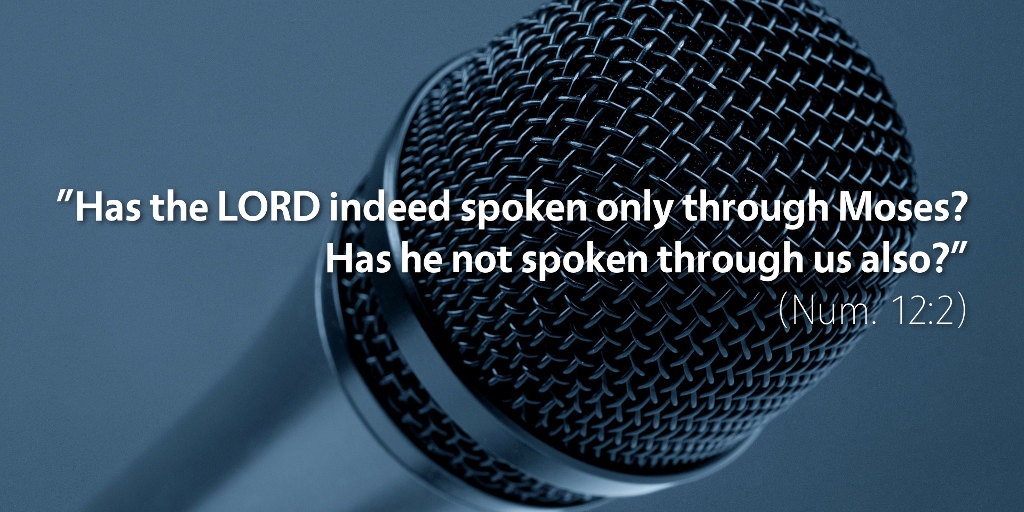Bible Readings for May 5th
Numbers 12–13 | Psalm 49 | Isaiah 2 | Hebrews 10
Numbers 12 is where things start to fall apart. Through all of Numbers—and through Exodus and Leviticus before that—we have seen Yahweh establish a highly organized arrangement in the camp of Israel, allowing his holiness to dwell in the midst of sinful people. To keep his holiness free from desecration—and to keep the Israelites from being destroyed by his holiness—he has called certain people to be near to him in different degrees.
But beginning in Numbers 12, various factions begin to challenge the system Yahweh has established—and specifically, they direct much of their criticism to Moses out of envy for the privileged nearness to Yahweh he enjoys. What’s worst about this situation is that the criticism of Moses begins with those closest to him: his brother, Aaron, and his sister, Miriam.
The specific challenge that Miriam and Aaron raise relates to Moses’s prophetic ministry, arguing that Yahweh has spoken through many people, and not only through Moses (Num. 12:2). It seems, though, that their criticism stems from their disapproval of Moses’s Cushite wife (Num. 12:1). Yahweh had no problem with Moses’s marriage, as he makes clear, so this is most likely a petty, personal issue that Miriam and Aaron had with Moses’s wife.
Yahweh responds partially by defending Moses, but the main thing Yahweh does is to reestablish his boundaries for dwelling in the midst of Israel. If anyone will serve as prophet, Yahweh insists that he will make that calling known to the prophet (Num. 12:6).
In fact, that is exactly what had happened in Numbers 11—Yahweh made seventy of the elders of Israel to be prophets, even overlooking the fact that Eldad and Medad hadn’t gone outside the camp as they were supposed to do. It is Yahweh’s prerogative—and Yahweh’s alone—to put his Spirit on someone so that that person may speak in his name.
And that is what Yahweh found so offensive. From all people, Yahweh had appointed Moses alone to serve a special role as the mediator of the covenant he was forming with Israel. With Moses, Yahweh had chosen to speak mouth to mouth—not like a common prophet who has an occasional dream or vision, but as a friend (Ex. 33:11). To criticize Moses was to criticize Yahweh for his choice of mediator. For Yahweh, this criticism was personal.
In this we see a glimpse of how the Father feels about his Son. Where Moses was faithful in the house (Num. 12:7), we’re told that Jesus is the builder of the house (Heb. 3:3). Not only has the Father chosen Jesus to be the mediator of the new covenant, but Jesus is the Father’s beloved, only begotten Son.
This is why all religions cannot be equal. Infinitely more than even with Moses, the Father takes the honor and glory of his Son personally.
Podcast: Play in new window | Download (5.1MB) | Embed
Subscribe: Apple Podcasts | RSS | More

Scripture quotations are from The Holy Bible, English Standard Version copyright © 2001 by Crossway Bibles, a division of Good News Publishers. Used by permission. All rights reserved.


